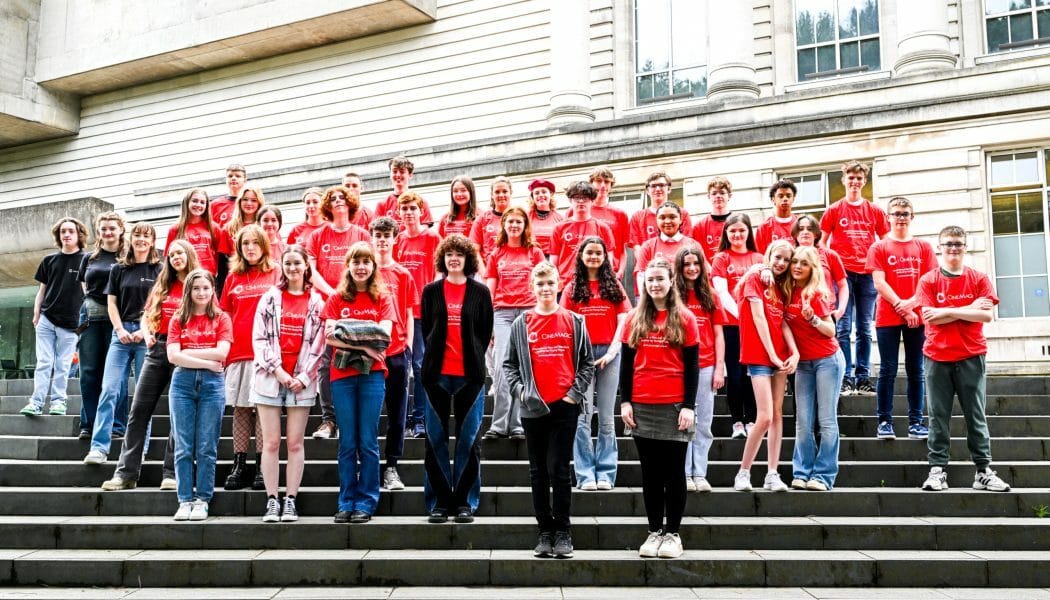Youth Film Festivals Cultivate the Next Generation of Creative Voices
In the dynamic world of student film festivals, young creators take the lead, shaping cinematic futures and cultural conversations with courage and creativity.

There has never been a stronger appetite for youth-driven film festivals across the UK and Ireland. As the curtains open on 2025’s busiest season of student film festivals, there’s a marked shift in how young people are being engaged, not simply as audiences, but as creative consultants and programme shapers. With youth film events from the Barbican’s Chronic Youth Film Festival to Ireland’s long-running Young Filmmaker of the Year, this new model is not just about screening films; it’s about fostering creative agency and real-world skills among budding filmmakers.
This growing movement is reflected in initiatives like Cinemagic’s Young Film Consultants scheme, set to unfold this July at Belfast’s Ulster Museum. Here, young enthusiasts are invited to step into the world of film curation—watching, critiquing and recommending films for one of the UK’s and Ireland’s largest youth film festivals. What’s behind this surge of opportunity for young people in the industry? And how are these student film festivals reshaping the future of film culture?
Youth-Led Programming: Placing Creative Power in Young Hands
In an era where attracting younger audiences to cultural events is a challenge, festivals that hand over the reins to their target demographic are ahead of the curve. Cinemagic’s approach is a case in point: their two-day Young Film Consultants event places participants aged eight to seventeen in groups by age, partnering with the Cinemagic team for hands-on festival planning. Chris Shaw, Cinemagic Programmer, underlines the value of this collaborative format: ‘We are looking forward to welcoming young film fans to our annual young film consultants panel, which has been one of the longest running initiatives of the Cinemagic Festival since its inception. The film consultants will have the opportunity to watch and review international films guided by the Cinemagic team and there will be lots of opportunities for discussion and debate.’ This format offers a sense of ownership and relevance, often missing from more traditional models of film programming.
The Rise of Student and High School Film Festivals
The growth of youth film festivals across the UK mirrors international trends, where festivals such as the NFFTY Film Festival and CineYouth Film Festival draw major search interest and act as gateways to creative careers. In the UK and Ireland, this landscape is rapidly evolving too, with annual fixtures including the Fresh International Film Festival celebrating 29 years of championing young Irish filmmakers, and a surge in short film competitions aimed at high school students. According to a BFI Film Audience Network guide, youth-led programming “brings great energy and an abundance of ideas”, creating programmes more closely aligned to the tastes and interests of younger audiences—a powerful tool when cinemas are facing declining youth attendance.
Industry Context: Why Film Festivals Cannot Afford to Ignore Young Audiences
There’s more at stake than just boosting ticket sales. According to sector research, involving young people in film festivals does wonders for their personal confidence, critical thinking and communication skills—a vital point as film education continues to gain traction in national curricula. As reported by Screen Daily, “talking to young people who are equally excited about what you’ve put together is a good way to renew your love of the festival” and ensure its future relevance. Meanwhile, community-building strategies around youth participation are helping to overcome barriers such as social anxiety and lack of companionship, drawing young people to events they might otherwise miss.
Competitors in the UK and abroad have sharpened their approaches too. At the Barbican’s Chronic Youth Film Festival, the programming celebrates stories of resilience and cultural diversity, while initiatives like Nextwave Youth Film Competition in the US provide unique production and leadership experiences for young filmmakers. These international models underscore the growing demand for immersive, “learner-driven” events over one-size-fits-all presentations, a view echoed in Ireland’s Young Filmmaker of the Year where participants are celebrated for both storytelling skill and creative courage.
From Inspiration to Real-World Impact
Scheme structures are evolving too, reflecting the spectrum of youth development. Cinemagic’s workshops group aspiring film consultants by age—eight to eleven, twelve to fourteen, and fifteen to seventeen—ensuring every participant finds their voice amongst peers. The ticket pricing (£10 for both days) is kept accessible, levelling the playing field for all backgrounds, a vital consideration when tackling issues of representation and inclusion in creative industries.
Across the sector, the impact of these student film festival opportunities is quantifiable. A BFI study finds that 71 percent of young participants say they now think more critically about films they watch, and 43 percent are more likely to attend future film events. Clearly, giving young people a seat at the table doesn’t just fill auditoria, it fosters lifelong habits for cultural participation and critical engagement.
The Future Outlook: A Generation Stepping Forward
As 2025’s calendar fills with new and established youth film festivals, the message is clear: meaningful youth engagement is not a ‘nice-to-have’ but a necessity for the sector’s future health. Whether through hands-on mentorship programmes in the US or age-grouped consultant panels in Belfast, these events are forging the next wave of filmmakers, critics and cultural contributors. With improved support from government bodies and cultural funds—the National Lottery UK, the Department for Communities and Northern Ireland Screen, among others—the foundations are being laid for an industry shaped by its youngest voices.
For parents, educators and young creatives alike, there’s a palpable sense of excitement about these opportunities. After all, does anything compare to the thrill of seeing your recommendation light up the screen for an entire festival audience? The journey from audience to arbiter is now wide open to a new generation—inviting them not only to watch, but to shape the story of film in the British Isles and beyond.





